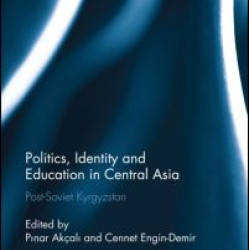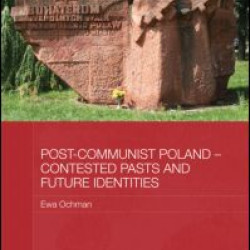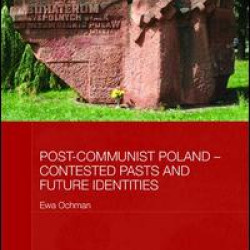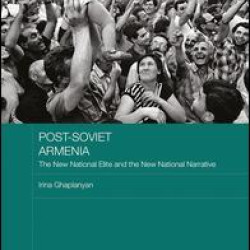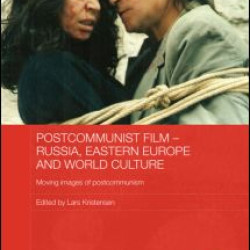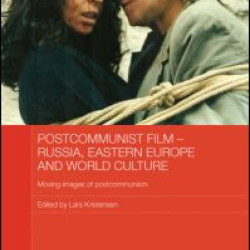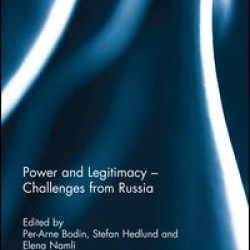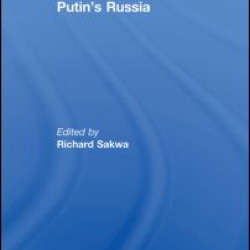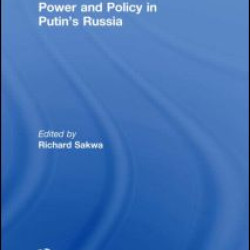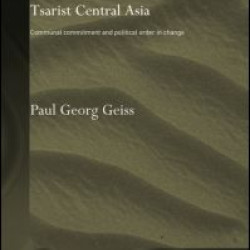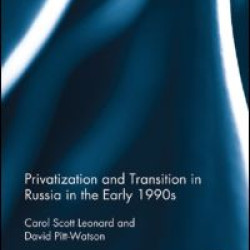Central Asian, Russian & Eastern European Studies
Brand: Taylor & Francis
Model: Stock
Focusing on the areas of politics, identity and education, this book looks at some of the most pressing and challenging issues that Kyrgyzstan faces in the post-Soviet era. It argues that Kyrgyzstan is challenged with oscillations between the old and the new on the one hand, and domestic and interna..
₹8,812.80 ₹11,016.00
Brand: Taylor & Francis
Model: Stock
This book explores border conflicts in the EU’s eastern neighbourhood via a detailed focus on state power and sovereignty, set in the context of post-Cold war politics and international relations...
₹8,445.60 ₹10,557.00
Brand: Taylor & Francis
Model: Stock
This book explores the reinterpretations of Poland’s past which have been undertaken by Polish national and local elites since the fall of communism. It focuses on commemoration, memorials, monuments and the creation of ideologies, identities and myths – and on the de-commemorating of communism...
₹8,812.80 ₹11,016.00
Brand: Taylor & Francis
Model: Stock
This book explores the reinterpretations of Poland’s past which have been undertaken by Polish national and local elites since the fall of communism. It focuses on commemoration, memorials, monuments and the creation of ideologies, identities and myths – and on the de-commemorating of communism...
₹2,569.66 ₹3,212.08
Brand: Taylor & Francis
Model: Stock
The book examines the importance of the Nagorno-Karabakh conflict with Azerbaijan, considers the impact of fraught relations with Turkey and the impact of relations with other neighbouring states including Russia, and discusses the poorly-developed role of the very large Armenian diaspora...
₹8,812.80 ₹11,016.00
Brand: Taylor & Francis
Model: Stock
A postcommunist condition has arisen from the fall of the Berlin Wall and later the Soviet Empire: this book looks at how this condition has manifested itself globally in the production of post-communist film. It argues post-communism is a shared experience on a geopolitical level, unlimited by nati..
₹8,812.80 ₹11,016.00
Brand: Taylor & Francis
Model: Stock
A postcommunist condition has arisen from the fall of the Berlin Wall and later the Soviet Empire: this book looks at how this condition has manifested itself globally in the production of post-communist film. It argues post-communism is a shared experience on a geopolitical level, unlimited by nati..
₹3,083.74 ₹3,854.68
Brand: Taylor & Francis
Model: Stock
This book sheds new light on the continuing debate within political thought as to what constitutes power, and what distinguishes legitimate from illegitimate power. It does so by considering the experience of Russia, a polity where experiences of the legitimacy of power and the collapse of power off..
₹3,083.74 ₹3,854.68
Brand: Taylor & Francis
Model: 9780415518680
A landmark analysis of Putin’s presidency, neither condemning nor praising but providing a sober evaluation of how Russia changed under Putin, and how the world began to come to terms with these changes...
₹2,643.10 ₹3,303.88
Brand: Taylor & Francis
Model: Stock
A landmark analysis of Putin’s presidency, neither condemning nor praising but providing a sober evaluation of how Russia changed under Putin, and how the world began to come to terms with these changes...
₹8,812.80 ₹11,016.00
Brand: Taylor & Francis
Model: Stock
This study represents the first comparative examination of Central Asian communal and political organisation before and after the tsarist conquest of the region...
₹2,643.10 ₹3,303.88
Brand: Taylor & Francis
Model: Stock
This work, written by two senior advisors to the Russian government and with unique access to documentation, tracks the decision making process in the Russian Mass Privatization process supplemented by interviews with many of the key participants...
₹3,304.06 ₹4,130.08


